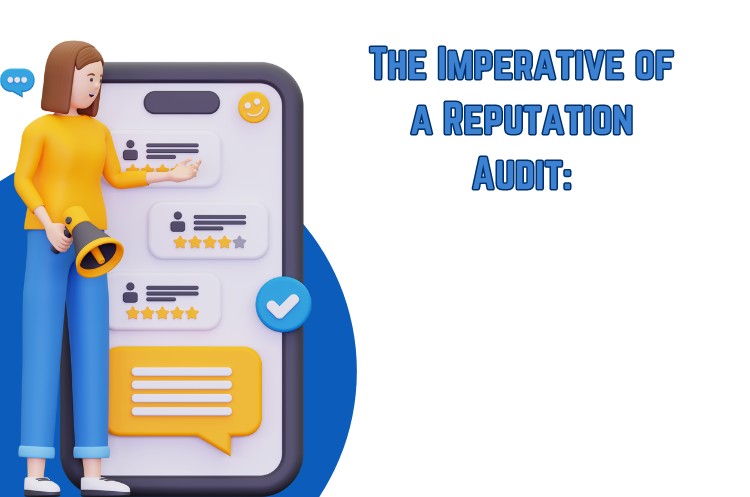A Comprehensive Guide to Effective Brand Reputation Management
Introduction:
In the dynamic world of business, where the digital realm reigns supreme, the significance of a brand’s reputation cannot be overstated. Picture this: a single misstep, a poorly handled online conversation, or a misconstrued story can reverberate across the internet, potentially causing irreparable damage to your brand. The good news is, with adept brand reputation management, you can not only shield your brand from potential crises but also actively shape and enhance its image.
Understanding the Essence of a Brand:
To embark on the journey of effective brand reputation management, it’s crucial to grasp the essence of a brand. In the vast landscape of marketing, a brand serves as the identifiable face of a company, individual, product, or service. Beyond tangible elements like logos and slogans, a brand encompasses intangible qualities such as value, innovation, and problem-solving. It’s this intangible yet powerful concept that shapes perceptions and fosters essential aspects like trust and loyalty among consumers.
Decoding Brand Reputation Management:
Brand reputation management is not a passive endeavor; it’s an ongoing and active process. This involves carefully monitoring your marketing strategies, engaging thoughtfully with customers on social media, and being proactive in addressing potential issues. Essentially, it’s about taking charge of the narratives associated with your brand.
The Significance of Reputation Management:
Living in an era dominated by the internet, even the smallest missteps can quickly snowball into significant crises. The constant churn of the 24-hour news cycle on social media means that a crisis today could have detrimental effects on your business tomorrow. Effective reputation management is not just about avoiding negative publicity; it’s also a strategic tool for gaining insights into customer preferences, fostering positive conversations, retaining customers, and boosting overall sales.
Proactive vs. Reactive Management:
When it comes to reputation management, there are two primary approaches: proactive and reactive. Proactive management involves building your brand and establishing positive relationships, especially crucial for newer brands. On the other hand, reactive management addresses issues as they arise. A balanced approach that combines both is often the key to long-term success.
The Imperative of a Reputation Audit:

Before diving into reputation management strategies, it’s essential to conduct a thorough audit of your brand’s current standing. This is where the expertise of a reputable reputation management firm comes into play. By utilizing methods such as customer surveys, online polls, and analysis of online reviews and social media discussions, these firms can provide valuable insights, helping you separate genuine criticism from online noise.
Navigating Online Conversations:
Social media, a powerful tool that can both build and destroy reputations, requires careful navigation. A reputation management firm can assist in developing effective strategies to address online complaints, turning detractors into supporters and neutral parties into customers. Engaging with customers on social media can not only mitigate potential risks but also create opportunities to strengthen your brand.
Time Efficiency of Management:
While internal reputation management is an option, it often proves time-consuming for your team. Outsourcing to a reputable firm ensures the best brand reputation and allows your employees to focus on their core competencies, such as marketing and sales.
Build Brand Better – Your Trusted Reputation Management Partner:
In the vast realm of online reputation management, Build Brand Better emerges as a company dedicated to assisting businesses in navigating the complexities of brand reputation. Our expert team employs a combination of proactive and reactive strategies, conducting comprehensive reputation audits and crafting effective responses to online conversations. With Build Brand Better, you not only safeguard your brand but also unlock its full potential, ensuring sustained success in the digital landscape.
Conclusion:
In conclusion, effective brand reputation management is a multifaceted endeavor that requires a proactive and strategic approach. By understanding the essence of your brand, collaborating with reputable reputation management firms, and navigating online conversations with finesse, you can not only shield your brand from potential crises but also actively shape a positive and resilient online presence. In the ever-evolving digital landscape, investing in brand reputation management is not just a choice but a strategic imperative for long-term success.
FAQ
- What is brand reputation management, and why is it essential for businesses?
Brand reputation management is an active process where businesses work to positively influence their online reputation. It involves monitoring marketing strategies, engaging with customers on social media, and addressing issues promptly. It is crucial because in today’s digital era, a single negative incident can have severe consequences for a brand’s image.
- How does a brand differ from a slogan, logo, or trade dress?
While components like slogans, logos, and trade dress contribute to brand image, a brand itself is an intangible concept. It encompasses the perceptions of a company, individual, product, or service, shaping aspects such as value, expertise, innovation, or problem-solving.
- What are the hallmarks of a powerful and effective brand?
The hallmarks of a powerful and effective brand include awareness, trust, and loyalty. These are developed through brand awareness, where people form preferences and feelings toward a given company.
- Why is reputation management crucial in the age of the internet and social media?
The internet and social media can magnify even minor mistakes into significant scandals. The 24-hour news cycle on social media means that a crisis today could lead to severe consequences for a business tomorrow. Effective reputation management helps businesses avoid negative publicity and gain valuable insights into customer preferences.
- What is the difference between proactive and reactive reputation management?
Reactive management addresses issues as they arise, while proactive management focuses on expanding a brand, especially for younger brands, while preserving positive relationships and image.
- Why should a business conduct a reputation audit, and how is it done?
Conducting a reputation audit is essential to improve a brand’s reputation. It involves methods such as customer surveys, online polls, and analyzing online reviews and social media discussions. This helps separate genuine criticism from trolling.
For more Blogs:- www.buildbrandbetter.io/blog/

